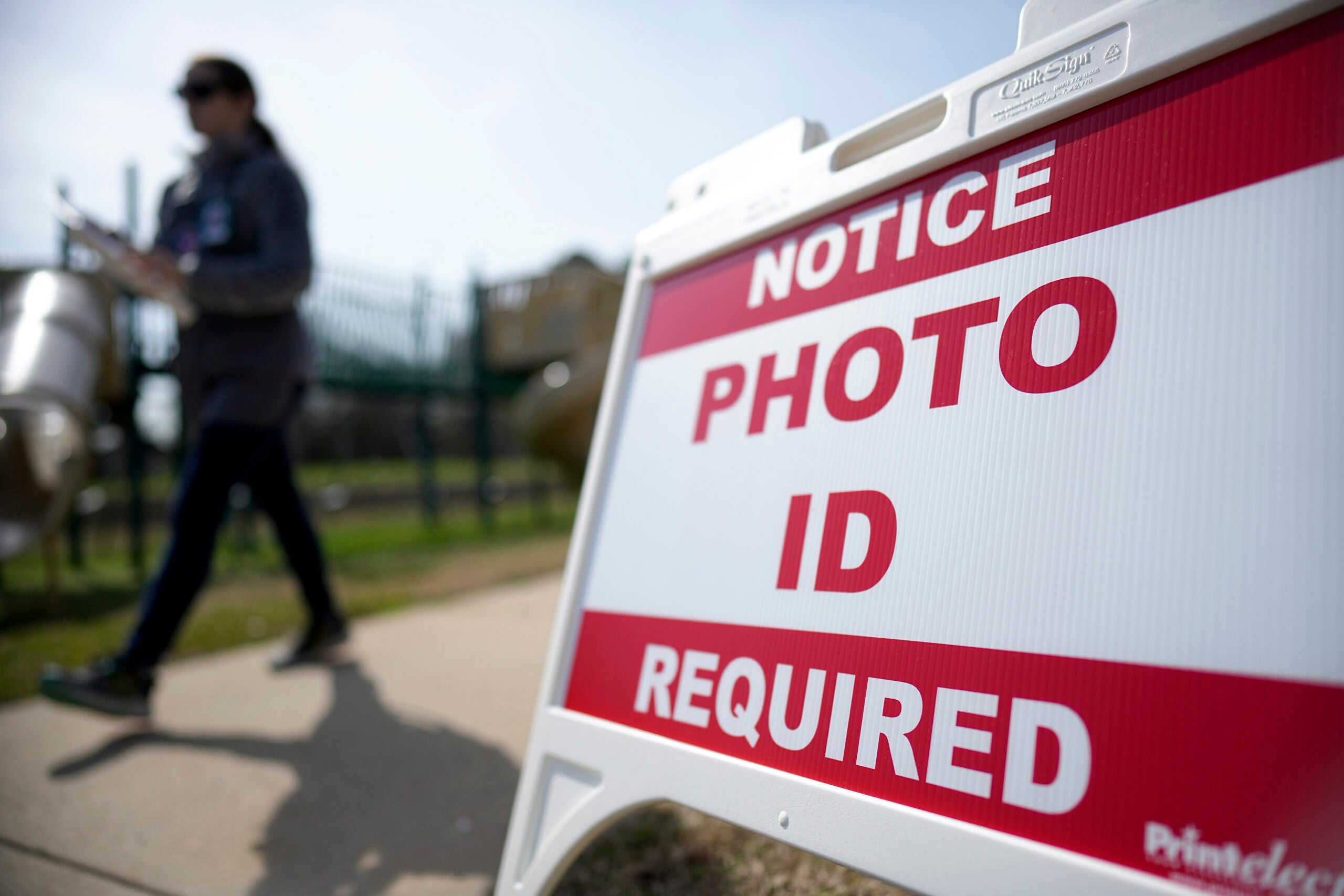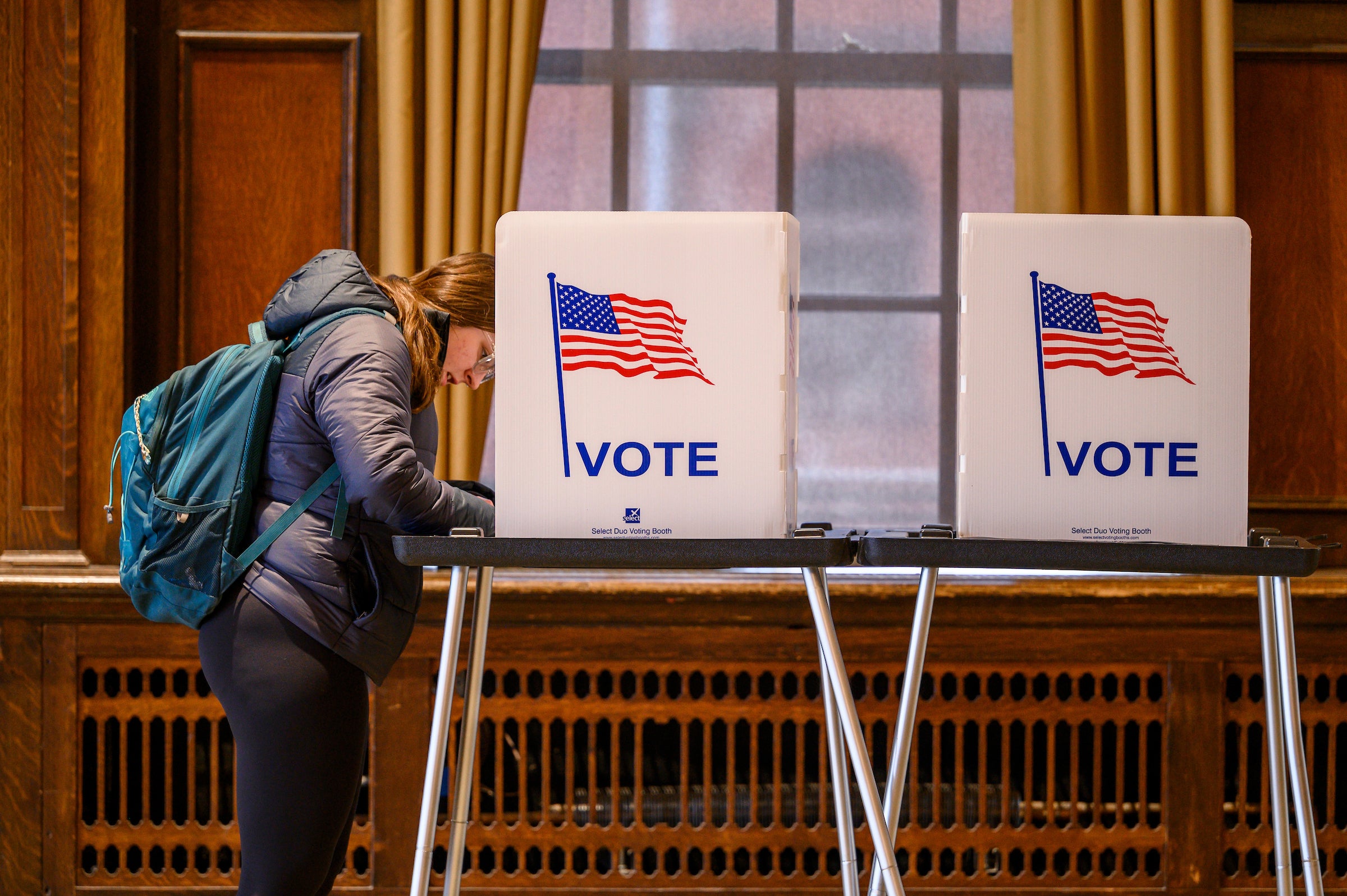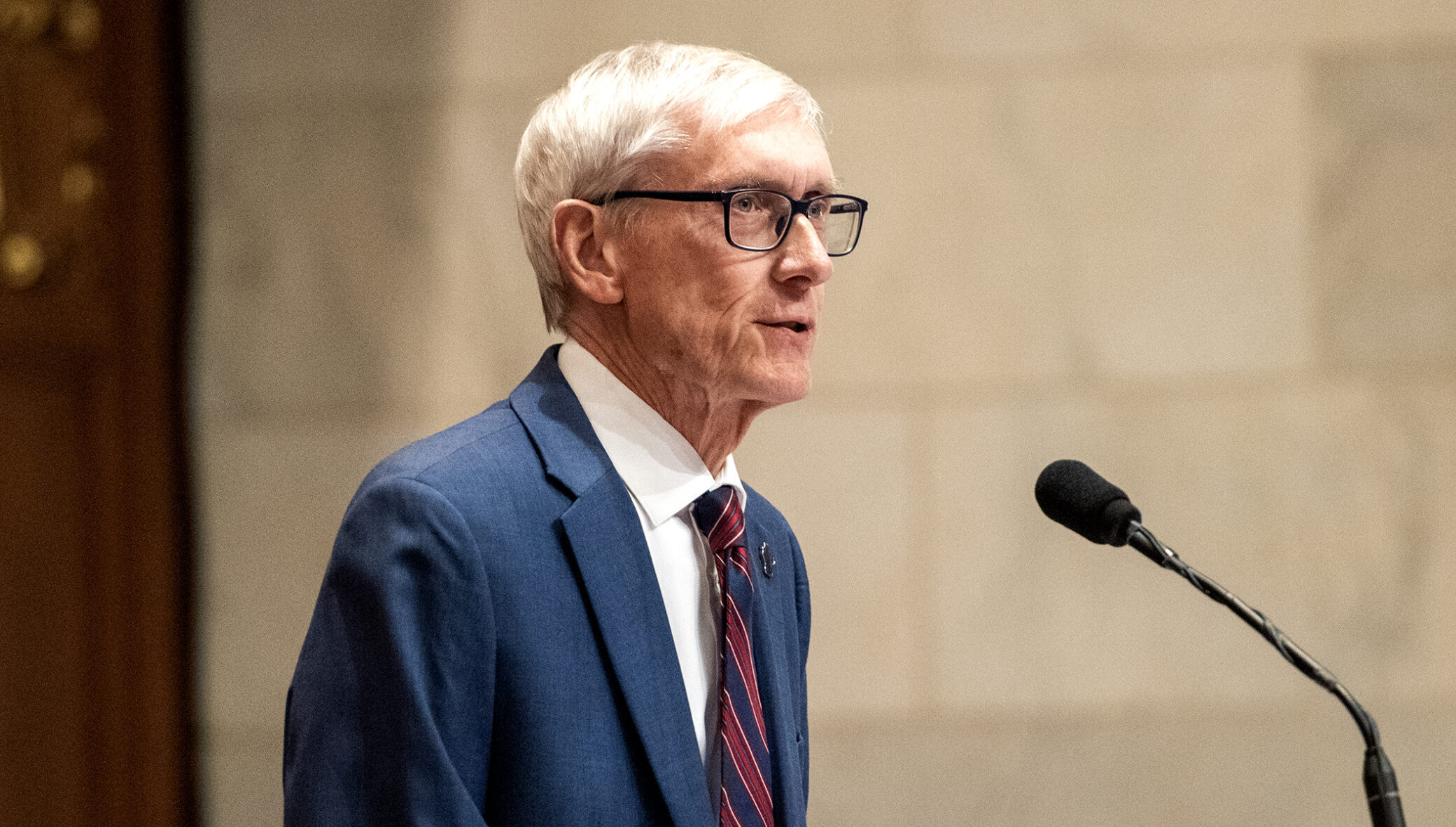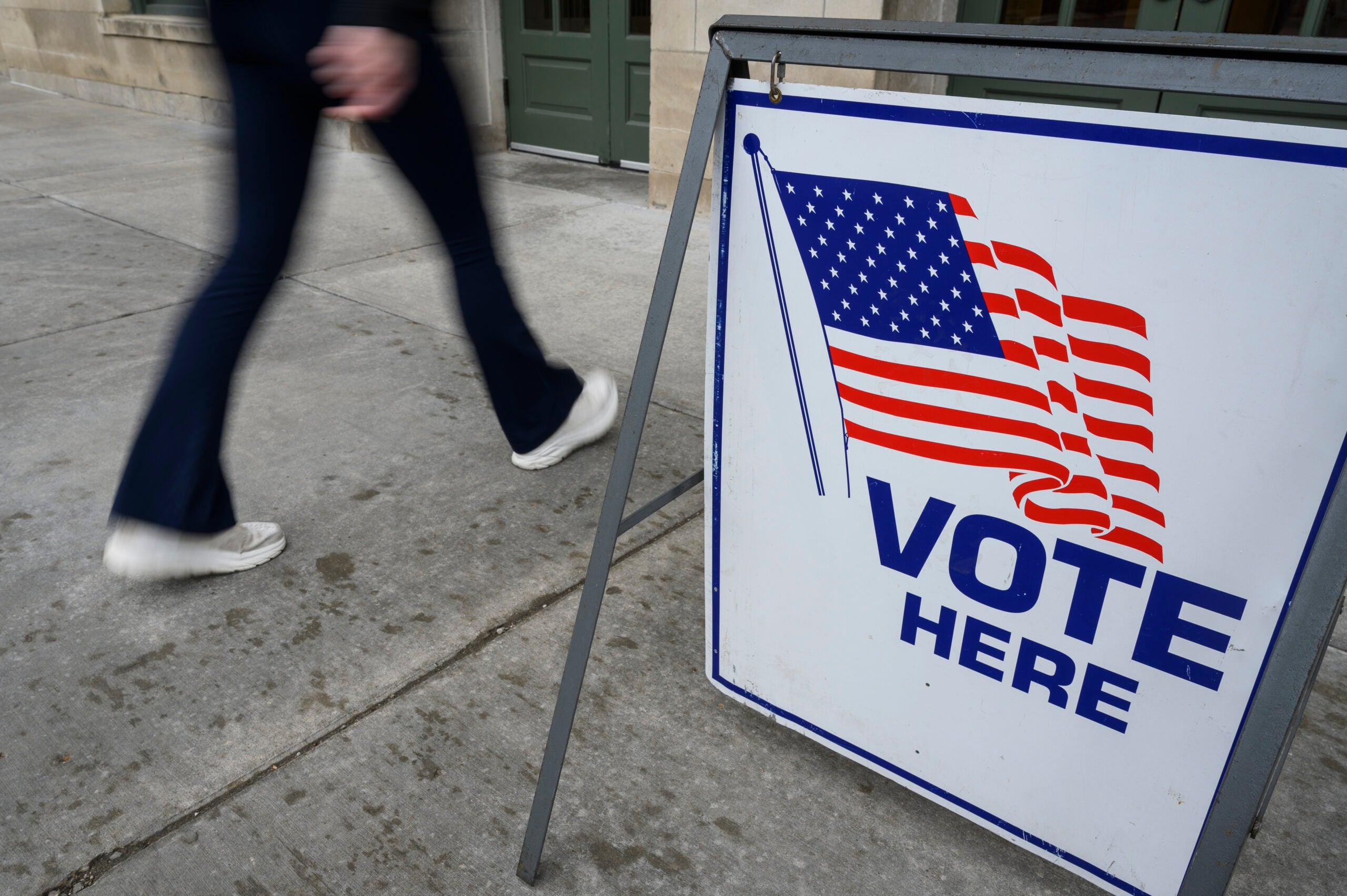Wisconsin voters have agreed to amend language in the state’s constitution that limits voting to U.S. citizens.
The Associated Press called the race for the referendum at 9:42 p.m. Tuesday night. All results are unofficial until they’re certified in coming weeks.
Stay informed on the latest news
Sign up for WPR’s email newsletter.
Wisconsin’s Constitution already requires voters to be U.S. citizens through language that specifies, “Every United States citizen age 18 or older who is a resident of an election district in this state is a qualified elector of that district.”
The proposal passed by voters Tuesday amends that language and changes the word “every” in that sentence to “only.” It also adds a clause spelling out that the citizenship requirement applies to national, state and local elections.

Supporters say changes block possibility of noncitizens voting in local elections
GOP state lawmakers who brought the proposal to the ballot say the constitutional changes will make sure Wisconsin’s citizenship requirement for voters remains ironclad.
“With the passage of Question 1, voters have delivered an unmistakable message: Wisconsin elections will be decided by U.S. citizens, not far-left activists who would turn the ballot box into a petri dish for extremist policies,”Wisconsin Republican Party Chair Brian Schimming said in a statement Tuesday night.
Republican supporters of the proposal have said it will block the possibility of noncitizens voting in local Wisconsin elections at some point in the future.
Across the country, there are more than a dozen communities in other states that allow allow noncitizens to vote in local elections, such as mayoral or school board races.
No communities in Wisconsin allow noncitizens to vote, however. And, even without the constitutional amendment, it’s not clear whether pre-existing Wisconsin law would have allowed local officials to legalize local voting for noncitizens.
“Courts in other states have reached divergent conclusions about whether provisions akin to Wisconsin’s current constitutional text allow municipalities to authorize local noncitizen voting,” read an analysis from the State Democracy Research Initiative at the University of Wisconsin Law School.
Nonetheless, state Rep. Tyler August, R-Walworth, said the amendment will “close a loophole that could potentially lead” to noncitizens voting at the local level.”
“I believe that the people of the state will overwhelmingly support this change to ensure that their right to vote isn’t disenfranchised by someone who is not a U.S. citizen, canceling their vote out,” August said on the floor of the Assembly last year.
Illegal voting by noncitizens is extremely rare
Federal law already makes it illegal for noncitizens to vote in federal elections. Wisconsin laws also limits voting to U.S. citizens, and the state’s voter registration form requires someone to check a box affirming that they’re a U.S. citizen.
Illegal voting by noncitizens is exceedingly rare, research has found.
Critics of the referendum called it redundant, and they’ve accused Republicans of trying to capitalize on xenophobia. Throughout this election season, former President Donald Trump and his allies have repeated false claims about Democrats signing up large numbers of noncitizens to vote illegally.
Additionally, critics of the referendum have argued that it could weaken voting rights, by changing language guaranteeing the right to vote from “every” U.S. citizen to “only” U.S. citizens. The groups that opposed the changes included the American Civil Liberties Union of Wisconsin and Wisconsin’s League of Women Voters.
The proposal got to the ballot after being approved by Wisconsin’s Republican-controlled state Legislature in two consecutive legislative sessions.
Historically, Wisconsin voters have been likely to say yes to proposed constitutional amendments.
Over the state’s history, there have more than 200 constitutional amendments on statewide ballots, and more than 70 percent of those proposals have passed.
Wisconsin’s proposal on noncitizen voting is part of a national trend. This November, voters in seven other states considered similar state constitutional amendments to explicitly limit voting to U.S. citizens.
Wisconsin Public Radio, © Copyright 2025, Board of Regents of the University of Wisconsin System and Wisconsin Educational Communications Board.




